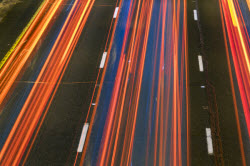
Al Seng’s dedication to his hobby is clear.
”It`s death, taxes and street racing,” he told a Chicago Tribune reporter, who followed Seng and his colleagues around during a drag racing all-nighter. This illegal activity is dangerous. For participants, that’s part of the fun. Besides, there are simply “too many streets, too few police” to put a stop to it.
Unfortunately, this Chicago Tribune story is from 1986, yet remains just as relevant today.
Street racing continues to plague local roads
When the sky is clear and the weather is warm, drag racing in the Chicagoland area is inevitable. Whether on a car-lined residential street or down on Lower Wacker, custom-engineered vehicles can often be found speeding side-by-side – sometimes well over 100 mph. Only a rush of sirens and squad cars can break up these gatherings.
These events are incredibly dangerous, characterized by speed, recklessness and chaos. Anyone unlucky enough to be walking, biking or driving nearby when these drag races occur could easily find themselves in the hospital, facing severe injuries and a mountain of medical bills.
Police are well aware of the issue. At the start of 2020, Chicago safety officials outlined plans to curb street racing. Yet it persists, and has even gotten worse at times due to less traffic on the roads.
“It’s coming onto the main streets,” one Bridgeport resident told FOX 32. “That puts everyone else who’s driving at risk.”
Accountability for injuries
Street racing does not make someone immune to accountability. If a driver who participates in an illegal race injures someone else, they should be held responsible. A personal injury lawsuit is one of the ways that can happen, and can help ensure a victim receives compensation for medical bills, lost work and other injuries.
Illegal street racing has been a problem in Chicago for decades. Even if law enforcement remains a half step behind, you still have legal options to hold them accountable in the event their actions cause you to suffer.
